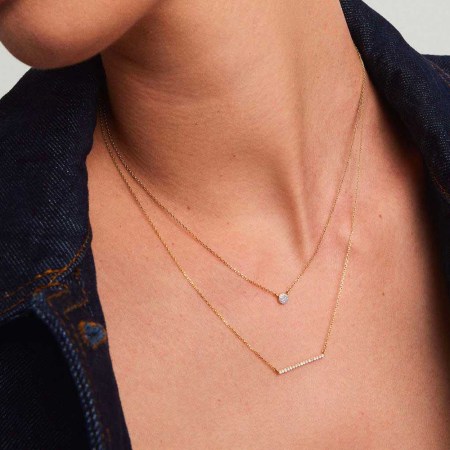Alicia Robb was recently at the Hera Venture Summit in San Diego when a young woman entrepreneur told her about arriving a meeting, with her presentation and pitch in hand, and then having one of the men in the room ask her to go fetch them all coffee. This followed another recent experience recounted by Robb, the founder and CEO of Next Wave Impact and an active angel investor, where a male venture capitalist spent his time hitting on her during a meeting.
“I thought when I got to my forties I wouldn’t have to deal with this shit,” Robb said. Stories like these are disheartening, but they also remind her why she created Next Wave Impact, a group working to increase diversity in angel investing and high growth entrepreneurship through a learning-by-doing model.
“(Stories like these) make me sad and angry but make me redouble my efforts to change the situation,” Robb said during a phone interview.
These stories also come at a time where industries across the board are reckoning with the worldwide #MeToo movement, which has brought attention to sexual harassment and misconduct in the workplace. Silicon Valley has been accused of “bro culture” and Preqin, a provider of alternative-assets data, reports that as of October 2017, women represented just 21 percent of employees at venture capital firms and held just 11 percent of senior-level positions in the industry.
“We’ve come a long way, but we have a long way to go,” said Robb.
According to research published by the Harvard Business Review, there is an “enormous gender gap in venture capital funding in the United States.” Despite owning 38 percent of businesses in the country, women entrepreneurs only receive about two percent of all venture funding, even though women-led companies require less capital while delivering higher returns. According to Crunchbase, women accounted for just 9 percent of U.S.-based venture-capital partners at the end of 2017, and things are even harder for women of color, who get 0.2 percent of all venture funding.
One way of fixing this gender gap: More angel investors who are women.
Angel investors are high net-worth people who invest his or her own money in a business and in return, get an equity share of that company. A study done by the Angel Capital Association and Wharton Entrepreneurship, which surveyed 1,659 U.S.-based angel investors, showed that 77.9 percent of angels are male. However, of the angels who started in 2014 or later, 30 percent of new angels are women.
According to Geekwire, the report noted, “As the number of female angels picked up in recent years, we also see an increasing overall interest in impact investing and gender lens investing.”
Why Female Angels Matter
Research by the Harvard Business Review research, conducted by Dana Kanze, Laura Huang, Mark A. Conley, and E. Tory Higgins, highlights why a more gender diverse angel pool matters. It found that venture capitalists pose different types of questions to male and female entrepreneurs—questions that betray a bias about perceived capabilities. For example, men seeking angel investor funding were more likely to be asked about their potential for gains, while women were more often asked about their potential for losses.
Billions can be left on the table because of this systemic bias. When Kathryn Minshew, one of Inc’s “15 Women to Watch in Tech,” was trying to raise money for The Muse, a female-focused job site, she pitched herself, her co-founders, and the Muse to everyone she could: Venture capitalists, angel investors, friends, acquaintances. But she kept getting turned down. Minshew told The Verge that she felt like a lot of the men she was pitching to did not understand the concept she and her co-founders were after.
“I went into one meeting with a venture partner and he said, ‘Yeah, I pulled up the site yesterday, but honestly, it just isn’t compelling to me at all.’ I wish I had been the person who I am now because I would looked back at him and said, ‘It doesn’t matter that it’s not compelling to you. It’s not built for you.’ He made it clear he had only taken the meeting because he’d be introduced [to us] by nine people [who thought he should meet with us],” she said, according to The Verge.
The Muse eventually raised $1.2 million after reaching out to more than 200 VCs and by 2016, the site had more than than 50 million users per year. That year, it raised $16 million in a Series B funding round.
Another woman entrepreneur explained how she still encounters gender stereotypes that are rooted in the Mad Men era. “I was asked early on how I was going to run a business and have a family at the same time,” said Sara Schaer, founder of childcare and rideshare site Kango. “My co-founder was not asked that even though he was a dad.”
Joanne Wilson, an angel investor and the founder of Gotham Gal, has noted a similar trend from the other side of the table. “I have heard things that men [angel investors] have asked to women that I am honestly blindsided by,” Wilson said during a phone interview. “Questions like: ‘Are you dating anyone? Are you married? Are you planning on having children? Because I don’t really want to invest in someone who is going have a kid while building the business.’”
This gender bias in angel investing is not just detrimental to the entrepreneurs, but to the communities they are hoping to serve with their products. For example, Rachel Sheinbein, a Venture Partner at Lemnos and an active angel investor, told me how the team who developed the airbag in cars was all-male, so they used the height and weight of the typical adult male as their design standard—with tragic consequences. When the first air bags deployed in cars went off, women and children who were higher and shorter than than the average man suffered greater injuries and even death.
Similarly, in 2012, the Washington Post reported that more for more than three decades, only adult male dummies were used during government crash testing aimed at helping car buyers choose the safest vehicles.
“A lot of research shows that if people don’t personally see the value or utility of the idea they won’t invest in it. So if women have products targeting the female market, that can be a tough sell to men,” said Robb. She went on to say, “Certainly, yes, I do feel like the lack of women on the investors side is detrimental to women who are pitching men.”
The research by Kanze and others found that when talking to male entrepreneurs, investors focused on hopes, achievements, advancements and ideals, what are known as “promotion questions.” But while quizzing female entrepreneurs about their prospects, investors zeroed in safety, responsibility, security and vigilance, what are called “prevention questions.”
This difference in investor emphasis—and expectations—made an impact on the eventual funding, the study found. Entrepreneurs who fielded mostly prevention questions raised an average of $2.3 million in aggregate funds for their startups through 2017. By contrast, entrepreneurs who were asked mostly promotion questions raised $16.8 million on average, seven times more.
“Fundraising as a woman is difficult,” explained Corey Angelo, founder of Wanderfuel. Only one-fifth of her company’s funding has come from male investors, and Angelo said she has had to personally work on her communication to make her venture more attractive to men. “It is a completely different language, much more direct than I think a lot of women speak, very assertive: ‘This is why I am amazing, let me show you and if you don’t believe me, this is why you’re wrong.’” Angelo explained. “This is not necessarily how women speak, it is a much more masculine style of communication that you do have to take on, especially when talking to a man or a fund populated by men.”
The Permeation of Gender Bias
Sonja Perkins, managing director of The Perkins Fund and founder of Broadway Angels as well as Project Glimmer, said that she doesn’t think this double standard in questioning shows all male venture capitalists are bad people, just that they lack awareness.
“I think that now that they are aware they will fund more women,” she said during a phone interview. “It was just a built-in thing that was accepted, but now with more data and light on this topic, we’re seeing real change, which is great.”
Female angel groups also allow women to find mentors and build networks in a way that is not typically offered to them—but is very common among men.
“I am of the belief that the more diverse investors we have in the environment, the more diverse entrepreneurs will get funded,” said Robb. “Those entrepreneurs become the next wave of investors, advisers, board members, and co-founders of new companies.”
Angelo, who has worked with 37 Angels, a community of women investors, said that there are a growing number of ways to crack into the fundraising and investment space today. “I really applaud the effort that seems to be escalating in the last year,” she said, noting that more and amore investors are “working consciously to balance out the gender inequality that is still a reality.”
Looking Ahead
Most of the entrepreneurs and angel investors interviewed spoke of how they’ve already noticed changes in the industry, and how they can see more of it coming. They urged women in the field to remain in the public eye, to proactively reach out to angel groups and other entrepreneurs, and to seek out mentors who can share best practices and networking tips.
“I constantly encourage people to go to their local angel investor events and go to the events that are for both genders,” said Robb. “If we’re in a silo we’re going to be less visible.”
Maintaining an active, visible presence in the investing space is not only important for current female entrepreneurs and women looking to become angel investors, but it also provides a valuable lesson for young women who haven’t even started their careers. Because those women will begin to see more and more role models for starting future businesses or becoming th next generation of venture capitalists.
“I am a big believer that if you have succeeded in something you should bring others up with you,” said Perkins. “It’s fun to see women win.”
And as for those inappropriate or personal questions?
“The best strategy is to bring the focus back to the business and back to the business results—focus on the facts of your business, feedback, press mentions, and highlight what you have accomplished,” said Schaer. “Do not focus on potential downside or potential risk.”
Robb had similar advice. “Focusing on your company, the market, and the return potential for the investor is a way to mitigate the questioning that’s not relevant,” she said.
As for current male venture capitalists, Schaer invited them to talk to their friends who have invested in women-led companies, or find resources and information online.
Wilson also had some advice for them.
“Hire more women investors, hire more women analysts, invest in companies that have equal gender balance from day one,” she said.
Listening to these successful female entrepreneurs and angel investors—and diversifying your investment team—means that you’ll be far less likely to miss out the next woman-led company that’s bound for millions.
This article was featured in the InsideHook newsletter. Sign up now.























